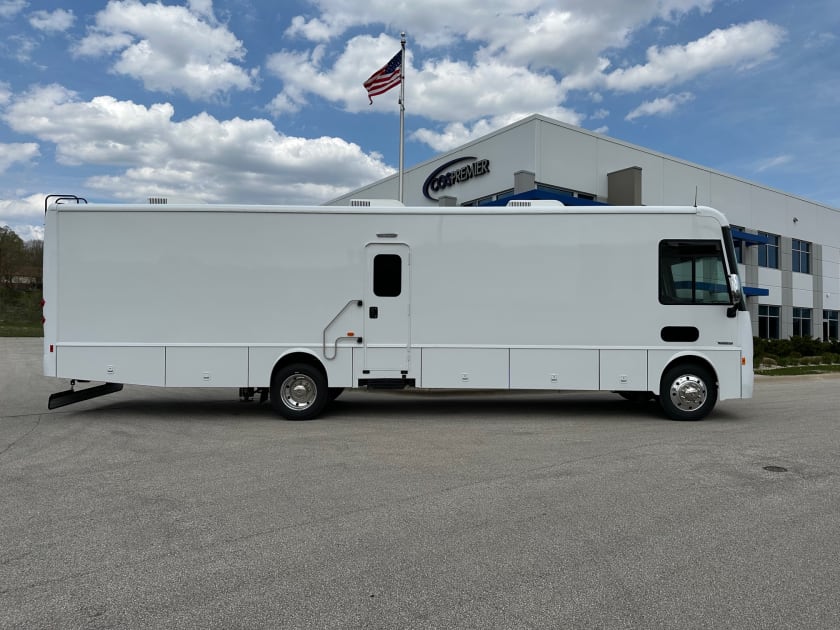
Equitable access to healthcare is a key element to lessening the racial health disparities that have existed throughout the history of the United States. But how can we increase access to care when many communities of color lack hospitals and clinics? By thinking beyond traditional healthcare delivery models that require people to come to immovable buildings, advocates of health justice can bring healthcare to the people.
Mobile health clinics are customized vehicles that travel to communities to provide healthcare services, often to those who otherwise lack access or connection to healthcare systems. They can deliver a range of services adapted to the community’s unique needs such as dental care, primary care, preventive care and/or health screenings, chronic disease management, behavioral healthcare, substance use treatment, prenatal care, and pediatric care.
Many mobile health programs provide free or low-cost services to patients and have proven successful in increasing access to primary healthcare services for underresourced areas that have seen shortages of primary care practitioners. Mobile health clinic programs have also been effective in reducing emergency department visits.
Many mobile health clinic programs successfully deliver culturally responsive care and build trust in communities that have historically been cut off from the healthcare system. Patients have cited the informal, respectful, friendly, and inclusive climate aboard mobile health clinics, which supports building trusting relationships with care providers. This in turn improves healthcare access and helps address social determinants of health by opening the door to referring patients to specialists, enrolling patients in assistance programs, and connecting those in need to other available resources within the community. Additionally, some mobile health clinic programs are structured to prepare and train a culturally responsive public health and nursing workforce.
Systemic Barriers to Equitable Care
Improving equitable healthcare access requires us to understand the mechanisms of structural racism in healthcare. These include: shortage of insurance coverage and affordable services, poor geographical access to medical services, lack of culturally responsive service delivery, and experiences of racism in services.
Due to the underfunding of Medicaid programs, especially in the South, there are over a million people in the insurance coverage gap who are disproportionately Black, Hispanic, Asian American, American Indian/Alaskan Native, Native Hawaiian/Pacific Islanders, and of multiple races. Difficulty affording healthcare services affect both the uninsured and the insured and disproportionately impacts low- and middle-income workers, as well as Black and Hispanic people.
Communities that are racially and economically segregated are more likely to experience shortages of primary care and other medical services. For example, predominantly Black neighborhoods are not only more likely to have insufficient numbers of primary care physicians, but they also have fewer surgeons and limited access to outpatient facilities.
Lack of confidence or mistrust in the medical system is another significant contributor to health disparities. Medical mistrust is a response to racism embedded in healthcare structures and interpersonal racism experienced by many Black, Brown, and Indigenous people in healthcare settings.


